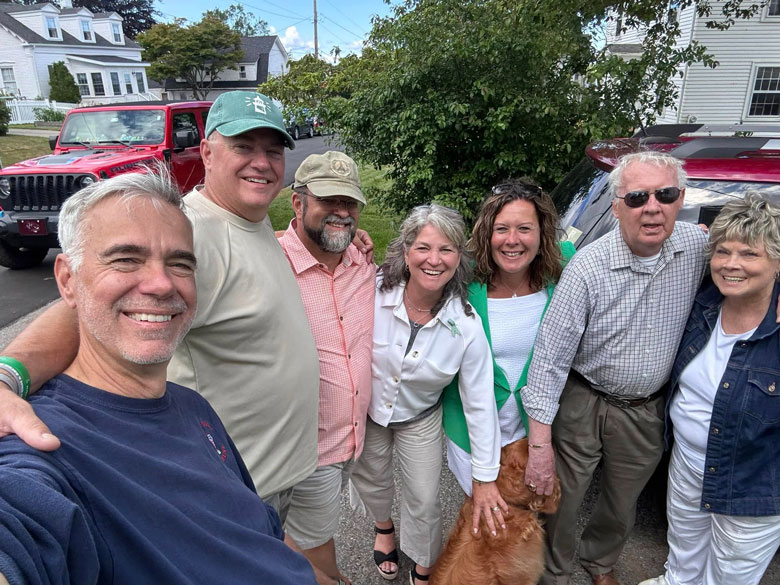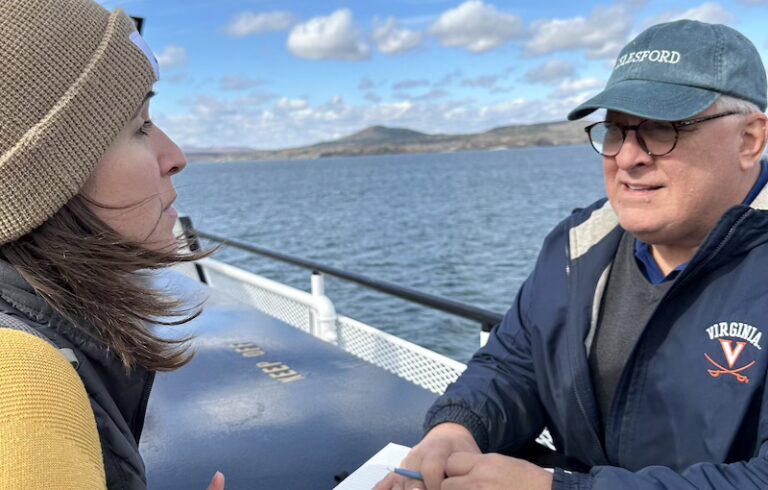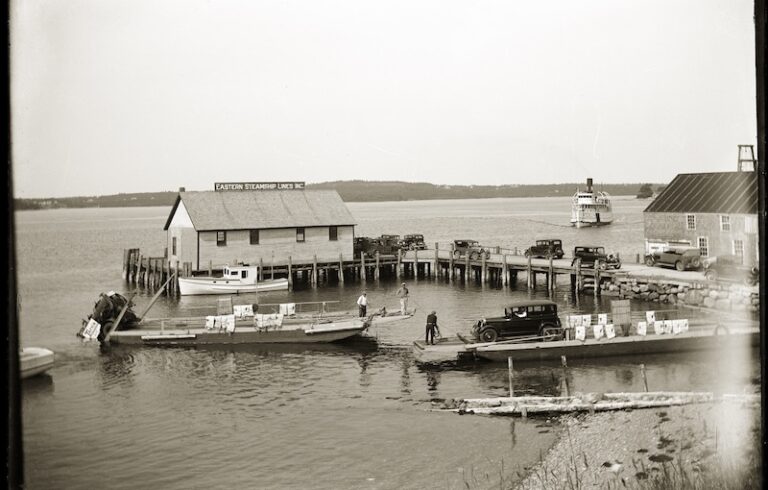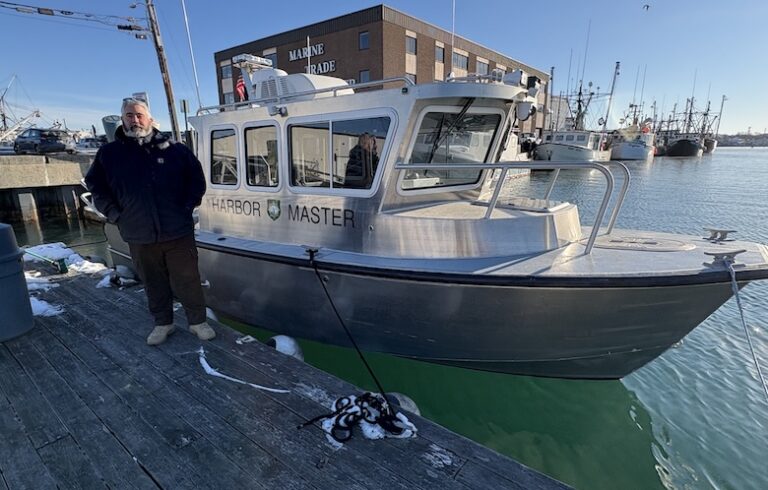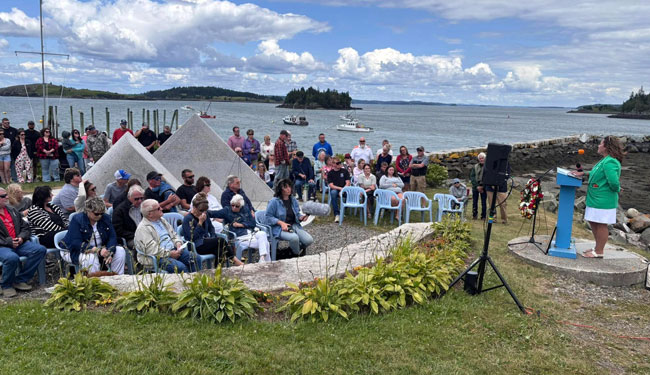
Liz Michaud has one hope for the fishermen of Maine—that they all return home to their families.
Michaud is the founder of Green and White Hope, a nonprofit organization improving safety for commercial fishermen. She started the organization following the death of her nephew, Tylar Michaud, in July 2023. Tylar had been lobstering alone off of Petit Manan when he was lost at sea. The family had celebrated his 18h birthday just one month earlier.
“He was missing at first, and I tried to keep the hope,” Liz Michaud says. “I thought, maybe he’s on an island with some of his friends. But it didn’t turn out that way.”
The fatality rate for fishermen was more than 40 times the national average in 2019.
Michaud launched Green and White Hope, named for the colors of Tylar’s buoys, in April 2025. The organization aims to “honor those lost by learning lessons from their passing, identifying gaps in knowledge, process, or technology that may have helped, and then partnering with subject matter experts to deliver solutions back to the industry,” Michaud says.
They work in several key areas—education and training, technology and equipment, and rescue and recovery.
Partners are critical to the organization’s approach. They work alongside many organizations involved in fishermen’s safety and well-being, including Fishing Partnership Support Services, McMillian Offshore Survival Training, the Maine Lobstermen’s Association, and the Maine Department of Marine Resources.
“Green and White Hope is really about amplifying the work other people are doing and establishing a coalition for commercial fishing safety in support of that community,” Michaud says.
Monique Coombs, director of community programs for the Maine Coast Fishermen’s Association, partners with Michaud on safety and well-being programs for fishermen. Coombs is a fisherman’s wife and the mother of fishermen . She says promoting holistic well-being for fishermen helps keep them safe at sea.
“If you’re fatigued, or pissed off, or have an overuse injury—even if you’re doing everything you can, there can still be slip-ups,” she says.
Commercial fishing is a notoriously dangerous occupation. The fatality rate for fishermen was more than 40 times the national average in 2019, according to the National Institute for Occupational Safety and Health.
While commercial fishing is dangerous on the whole, certain activities can raise or lower the risk. A 2010 report from the Center for Disease Control showed more than half of the fishermen who died after falling overboard were fishing alone, and none of them were wearing a personal flotation device (commonly known as a life jacket).
Green and White Hope and their partners address this issue by expanding training related to fishing alone and by promoting the use of life jackets, providing free or discounted life jackets to fishermen, and improving life jacket design.
Life jackets have not always been well-suited for commercial fishing. Thirty years ago, life jackets were cumbersome to wear. Their long straps could get caught in gear, and their bulky fit could restrict movement. In some cases, Michaud says, fishermen felt they caused more harm than good.
In 2025, however, life jacket technology has advanced considerably—from life jackets with very slim profiles, to jackets embedded into the bibs fishermen already wear, to jackets that auto inflate when submerged in water.
Coombs’ son wears a waterproof oilskin coat with flotation woven into the material.
Regardless of the type, “the best personal flotation device is the one you’ll wear,” Coombs says. “That little bit of support if there is a fall overboard can really make a difference in your safety.”
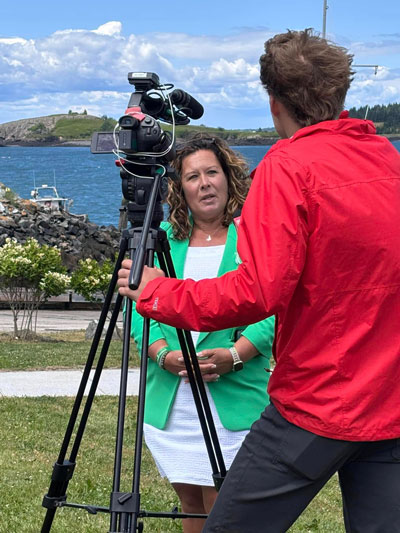
Green and White Hope has also worked to honor commercial fishermen by helping establish Maine Commercial Fishing Remembrance Day. Michaud and Coombs joined Gov. Janet Mills, Department of Marine Resources Commissioner Carl Wilson, and several other leaders on July 21 for a ceremony in Lubec to honor the first annual Day of Remembrance.
Though the day also marks the two-year anniversary of Tylar’s disappearance, Michaud says it should not be centered on Tylar. “It’s bigger than that,” she says.
Instead, it’s about honoring “the fishermen who have risked everything to put food on our table,” and centering hope for avoiding future tragedies.
The word “hope” is critical, Michaud says. Across the many organizations she has partnered with, “hope is a word that is used quite a lot, because there’s been so much sadness,” she says. “We have to transition towards working on things that bring people home. That’s what gives us hope.”
